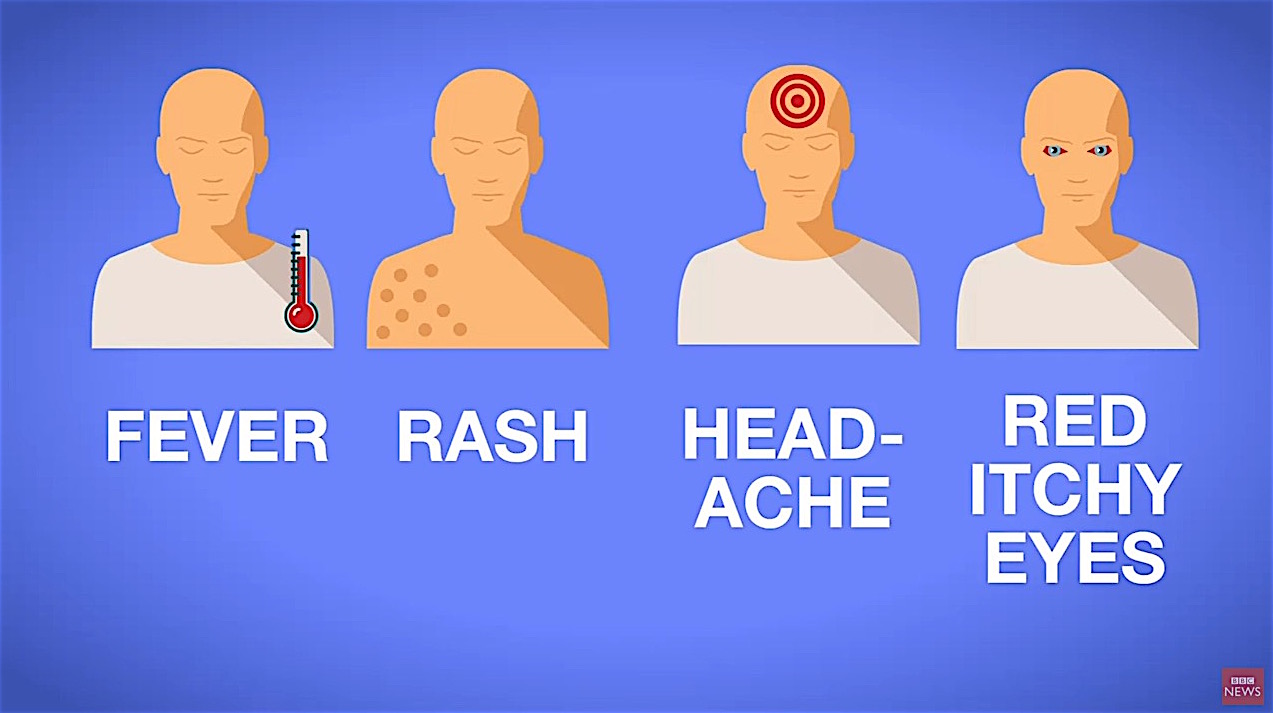A Zika vaccine could be 10 years away


The rapid spread of the Zika virus has public health officials worried, not least because so little is known about the mosquito-borne illness. In most children and adults, the symptoms are mild, if they appear at all, but there is a speculative link to the nervous system disorder Guillain-Barre syndrome and a more solid and troubling tie to microcephaly, a condition where babies are born with small heads and shrunken brains. There is no vaccine and no treatment, but researchers in Texas and Brazil are working on a Zika vaccine. It will probably be 5-12 years before they have one ready for the public.
Researchers at the University of Texas Medical Branch in Galveston tell BBC News they could have a working vaccine in a year or two, but that getting regulatory approval to use it on humans could take another eight to 10 years. Prof. Nikos Vasilakis says that 20-30 million Americans in the Southern U.S. are at risk of infection if the virus spreads north of Mexico, as expected. But there's a debate over how dangerous the virus really is.
Several countries with significant infections — El Salvador, Colombia, and Brazil — are urging women to put off having children, given the risk of bearing children with microcephaly. But the spike in microcephaly cases in Brazil doesn't seem to be as big as originally thought, and the World Health Organization stresses that a link between the Zika virus and microcephaly is circumstantial and unproven. In 2014, Brazil had 150 reported cases of microcephaly a year (versus some 2,500 cases of microcephaly a year in the U.S.), so the 4,180 suspected cases reported since October shocked the country. But on Wednesday, Brazilian health officials said that of the 732 cases they examined more closely, 270 were confirmed to be microcephaly and 462 cases were actually something else.
The Week
Escape your echo chamber. Get the facts behind the news, plus analysis from multiple perspectives.

Sign up for The Week's Free Newsletters
From our morning news briefing to a weekly Good News Newsletter, get the best of The Week delivered directly to your inbox.
From our morning news briefing to a weekly Good News Newsletter, get the best of The Week delivered directly to your inbox.
Still, "I don't think we should lower our alarm over the Zika outbreak," Paul Roepe, co-director of Georgetown University's Center for Infectious Disease, tells The Associated Press. And two public health experts, Dr. Daniel Lucey and Lawrence Gostin, warned in the Journal of the American Medical Association that if the WHO doesn't act, it risks a repeat of the Ebola disaster in Africa. See more about Zika in the BBC News explainer video below. Peter Weber
A free daily email with the biggest news stories of the day – and the best features from TheWeek.com
Peter has worked as a news and culture writer and editor at The Week since the site's launch in 2008. He covers politics, world affairs, religion and cultural currents. His journalism career began as a copy editor at a financial newswire and has included editorial positions at The New York Times Magazine, Facts on File, and Oregon State University.
-
 The 8 best horror series of all time
The 8 best horror series of all timethe week recommends Lost voyages, haunted houses and the best scares in television history
-
 Breaking news: the rise of ‘smash hit’ rage rooms
Breaking news: the rise of ‘smash hit’ rage roomsUnder the Radar Paying to vent your anger on furniture is all the rage but experts are sceptical
-
 Did markets’ ‘Sell America’ trade force Trump to TACO on Greenland?
Did markets’ ‘Sell America’ trade force Trump to TACO on Greenland?Today’s Big Question Investors navigate a suddenly uncertain global economy
-
 Trump HHS slashes advised child vaccinations
Trump HHS slashes advised child vaccinationsSpeed Read In a widely condemned move, the CDC will now recommend that children get vaccinated against 11 communicable diseases, not 17
-
 FDA OKs generic abortion pill, riling the right
FDA OKs generic abortion pill, riling the rightSpeed Read The drug in question is a generic version of mifepristone, used to carry out two-thirds of US abortions
-
 RFK Jr. vaccine panel advises restricting MMRV shot
RFK Jr. vaccine panel advises restricting MMRV shotSpeed Read The committee voted to restrict access to a childhood vaccine against chickenpox
-
 Texas declares end to measles outbreak
Texas declares end to measles outbreakSpeed Read The vaccine-preventable disease is still spreading in neighboring states, Mexico and Canada
-
 RFK Jr. shuts down mRNA vaccine funding at agency
RFK Jr. shuts down mRNA vaccine funding at agencySpeed Read The decision canceled or modified 22 projects, primarily for work on vaccines and therapeutics for respiratory viruses
-
 Measles cases surge to 33-year high
Measles cases surge to 33-year highSpeed Read The infection was declared eliminated from the US in 2000 but has seen a resurgence amid vaccine hesitancy
-
 Kennedy's vaccine panel signals skepticism, change
Kennedy's vaccine panel signals skepticism, changeSpeed Read RFK Jr.'s new vaccine advisory board intends to make changes to the decades-old US immunization system
-
 Kennedy ousts entire CDC vaccine advisory panel
Kennedy ousts entire CDC vaccine advisory panelspeed read Health Secretary RFK Jr. is a longtime anti-vaccine activist who has criticized the panel of experts
